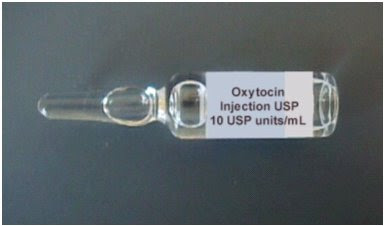Wednesday, February 28, 2007
Hello! I'm back again! This time I'm here to show you all an article related to oxytocin and how it may trigger trust! Read on!
ETHICS NEWSLINE, June 2006, Volume 8, No. 22
Researchers Find Hormone that Triggers Trust
While hormone could be abused, scientist says he is 'more alarmed about the manipulations of marketing than the possibility of oxytocin sprays'
ZURICH
Scientists in Switzerland recently announced that they had been able to distill trust -- a hard-won component of vital human relationships -- into a nasal spray, the science journal Nature reported last week.
Researchers at the University of Zurich joined with others to study the effects of the hormone oxytocin, which reacts naturally with the human brain during bonding activities like massage and sex.
Noticing that elevated concentrations of oxytocin occurred in women during and after birth, they wondered whether the hormone encouraged the trust and attachment needed for child-raising, reported the Associated Press.
The answer, they concluded, is yes, citing a study of 178 men who played a trust game involving money, placebos, and shots of nasal spray laced with oxytocin.
Researchers found that subjects who unknowingly received oxytocin were more likely both to trust a stranger and to trust them with larger amounts of money compared to subjects who received a placebo.
To eliminate the chance that oxytocin was simply encouraging the willingness to take risks rather than trust, the scientists then ran the experiment again, this time asking subjects to trust a computer rather than a stranger. The oxytocin effect did not show.
"Oxytocin specifically affects an individual's willingness to accept social risks arising through interpersonal interactions," the researchers wrote in Nature.
While the oxytocin effect had a relatively short window -- peaking after about 50 minutes and wearing off after two hours -- scientists noted that it may have applications both positive and negative.
While it could be useful in treating people with social anxiety disorders, they also noted that it could be misused to abuse people's trust in financial and political situations, reported the Associated Press.
(http://www.globalethics.org/newsline/members/issue.tmpl?articleid=06060517532821)
That's all for today! Hope you enjoyed reading the article! Good night!





